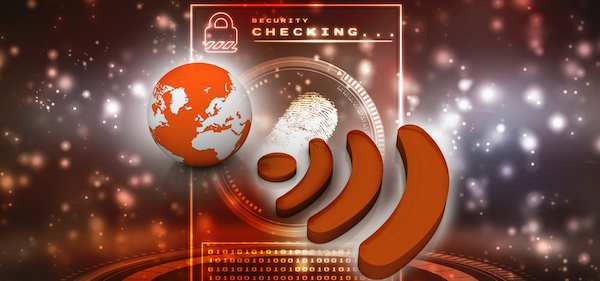Public wifi may be a great way to stay connected when you’re out and about, but it’s important to know how to keep your information safe from shifty hackers. Most public wifi is either unsecured or uses shared passwords. This means that when you are sitting at the train station, in your hotel or at your favourite café, you are an easy target for hackers. Here’s how to protect yourself when using public wifi.
Who’s after your data?
If you want to stay safe from hackers and information thieves, it’s important to know your enemy. These are a few ways that cyber criminals hijack your information.
Man in the middle (MITM) attacks
Most hackers employ a tactic called ‘man in the middle’ attacks. This mean they wait for your data to be sent and then hijack it whilst in transit.
The evil twin
This is a similar tactic to the man in the middle, but in this instance hackers set up legitimate-looking wifi hotspot and snare you by calling their hotspot something like ‘Free Public Wifi’ or by a name similar to the place at which you are accessing wifi. What may seem a generous offer by your neighbourhood café could in fact be a hacker’s trap – and once you’re connected, your data is an open book.
Packet-sniffing
Some hackers use software called packet sniffers to capture your data when in transit on the network that you are accessing at the time.
So, now you have an idea of how hackers snatch your data. You can combat these sneaky cyber stealers in these few ways.
Security tokens that require two-step authentication
Combining two-step authentication with any internet connection is a great way to thwart internet thieves. Most banks can provide you with a security token that can make your information much harder to hack – especially when you’re using public wifi to do your banking. Paypal, eBay and other online payment sites also offer inexpensive security tokens that make your online transactions so much safer.
Some public wifi may offer two-step authentication, which, when you access the network, means you’ll be directed to a website that asks you for your name, email address and mobile phone number. This is so the network can send you an individual password or code that you will need to enter before you can get online. It may seem a hassle at the time, but it’s an extra layer of protection that will safeguard your public internet activity.
However, before entering your data on such a page, double check the URL to make sure you’re on the right website and check that it’s secure.
Use internet encryption
When you use the internet, your phone, tablet or computer sends out information similar to radio waves. If you are using a site that is HTTPS secured, you are less likely to have prying eyes spying on your data. For more information on encryption software, read this article on www.lifehacker.com.
To find out if you are using a secure connection, look in your browser URL address bar and check if the URL is preceded by ‘https’ (i.e. https://www.websitename.com).
Be wary when using public internet
It’s always best to err on the side of caution when using public internet, or any time you’re online for that matter. But a good idea is to block cookies and remove tracking in your browser when you’re on public wifi, and take care not to click on any dodgy looking links, including emails and software pop ups (e.g. free software that offers to clean up your computer). Usually, if it sounds too good to be true, it is.
Use your phone’s personal hotspot instead
If you have a phone package with a generous data plan, then you will be safer using that instead of free public wifi. Using personal hotspots, or tethering, is a much more private way to access the internet, and it makes it more difficult for hackers to access your private information.
Use a Virtual Private Network (VPN)
Virtual Private Networks (VPN) are a go-between for your computer and the internet. Simply put, VPNs receive the data from your computer and encrypt it before sending it on. This means that if a hacker does get a hold of your data, they’ll have a tough time decrypting it, making it more likely that they’ll move on to a softer target.
VPNs also stop hackers from using packet-sniffing software and, as it encrypts your data, makes it much more difficult for them to get an easy read on your information.
Caution is the key
When using public wifi, try to stay away from making credit card purchases and don’t share sensitive data or anything that you wouldn’t want someone to see if they were looking over your shoulder. That way you can almost be assured of staying safe online.
Do you ever use public wifi? Were you aware of the risks involved?

